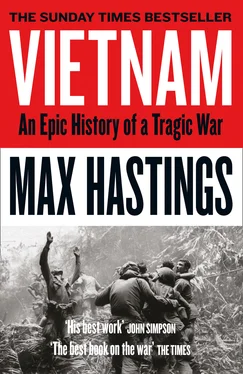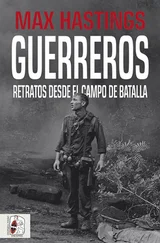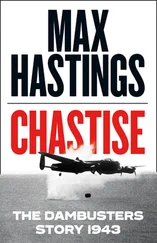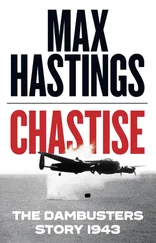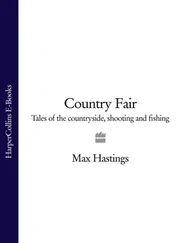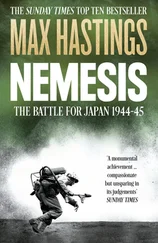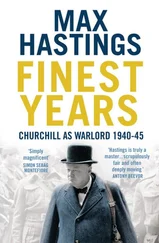1 ...7 8 9 11 12 13 ...54 Some Vietnamese at first regarded the return of the French as an acceptable temporary expedient, to rid themselves of the Chinese plundering the north. Ho Chi Minh received token recognition as master of Tonkin, while Bao Dai’s nominal rule over the country was acknowledged. In July 1946, when Ho visited Paris for talks about the constitutional future, he was greeted with the honours of a head of state. This, however, was mere window-dressing. In the talks at Fontainebleau that followed, the Paris government made it plain that he had been summoned only to receive the instructions of his masters, not to negotiate a reassignment of power. De Gaulle said: ‘United with the overseas territories which France opened to civilisation, she is a great nation. Without these territories she would be in danger of no longer being one.’
The head of the French delegation told a Vietminh representative contemptuously: ‘We only need an ordinary police operation for eight days to get all of you out.’ For some weeks, Ho lingered in frustration. Truong Nhu Tang, almost three decades later a Southern revolutionary minister, was among a group of Vietnamese students who met their hero in Paris. They were entranced when the aspiring national leader instructed them to call him ‘Uncle Ho’ rather than ‘Mr President’. He asked their opinions about Vietnam’s future, devoted an afternoon to conversation with them: ‘It is hard to think of another world leader who under similar circumstances might have done the same.’ When Ho found that the north, centre and south of the country were all represented in the student group, he said, ‘ Voilà! The youth of our great family … You must remember, though the rivers run dry and the mountains crumble, the nation will always be one.’ His remarks profoundly impressed his young compatriots, because they evoked ‘the language of slogan and poetry that Vietnamese leaders had always used to rally the people … From that afternoon I was Ho Chi Minh’s fervent partisan. I had been won by his simplicity, charm, familiarity. His … burning patriotism offered me a role-model for my own life.’
Ho returned to Tonkin knowing that no peaceful settlement was attainable. The French behaved with unswerving duplicity: as fast as more troops, planes and warships became available, they tightened their grip in the south, then reached out for the north. That summer of 1946 their foremost soldier, Philippe Leclerc, directed military operations: he branded Ho an enemy of France, and unwisely declared the conflict as good as won. The general treated with contempt Giap, Ho’s former intelligence chief who was then presumptive Vietminh ‘minister of defence’. Giap’s broad, infectious grin deluded some Westerners into believing that he was a more genial and pliable figure than his leader. In truth, Giap’s vanity matched his ruthlessness: the Frenchman’s casual insults fuelled his loathing for the colonialists.
Leclerc belatedly changed his mind about Indochina, becoming convinced that it could not be held in the face of a nationalist hostility shared by communists and non-communists alike. Yet shortly afterwards he was killed in an air crash in Africa, and Thierry d’Argenlieu thereafter dominated his country’s policy-making. The high commissioner was a figure of Jesuitical inflexibility, who persuaded the Paris government that the Vietminh could be crushed: ‘It is from now on impossible for us to deal with Ho Chi Minh … We shall find other people with whom we can negotiate.’ The French dallied with promoting the young ex-emperor Bao Dai. Yet in Vietnam, as in many oppressed nations around the world, a tide was running strongly for the Left. No other Vietnamese remotely matched the grip upon popular imagination secured by Ho.
In November 1946, following the breakdown of negotiations, the French launched a brutal naval and air bombardment of the Vietminh’s alleged strongholds in and around the port of Haiphong. Several thousand people perished, and only the city’s European quarter escaped devastation. On 19 December d’Argenlieu issued an ultimatum calling on the Vietminh to quit, to which they responded by staging an armed insurrection in Hanoi, sustained for sixty days. When at last they were expelled amid widespread destruction, the French deluded themselves that they had regained control of Tonkin.
Foreign observers were sceptical, however. A correspondent of The Times of London wrote in December: ‘Any colonial power which puts itself in the position of meeting terrorism with terrorism might as well wash its hands of the whole business. We are about to see the French army reconquer the greater part of Indochina only to make it impossible for any French merchant or planter to live there outside a barbed-wire perimeter.’ Ho and Giap, preparing for a long campaign, needed bases beyond range of France’s airfields and heavy guns. Thus, their main army, some thirty thousand strong, abandoned towns and cities and marched away to Viet Bac, the remote north-western region.
The Vietminh leaders, who became cave- or hut-dwellers, never deluded themselves that they could achieve absolute military victory. Instead, they sought merely to make French rule prohibitively costly. To this end, covert local groups waged guerrilla war, while regular forces launched setpiece operations where conditions appeared favourable. They relied chiefly on captured weapons, but also began to manufacture their own, assisted by some three thousand Japanese deserters. With boundless ingenuity, they scavenged French cartridge cases for reloading, made mines from captured shells and mortar bombs. At the outset, they exercised overt or secret control of around ten million people, most of whom paid taxes to them, and performed labour or military service. Though the Vietminh denounced opium trafficking as a manifestation of colonial exploitation, Ho boosted the movement’s revenues by the same means.
Families are almost sacred hubs of Vietnamese society, yet in those days many became riven. Ten-year-old Tran Hoi’s father was a Hanoi small businessman who continued to acquiesce in French rule. He said: ‘If we have to choose between colonial domination and communism, I will take colonialism, because it means access to Western civilisation.’ There was a bitter row when Hoi’s uncle, a doctor, announced his own determination to join Ho Chi Minh. The clan’s divisions, like those of many others, remained unhealed through decades of strife that now began to unfold.
2
The ‘Dirty War’
1 STEAMROLLER TYPES
In the early months of 1947 Charles Trenet crooned irresistibly, reminding the world of the glory of the French language: ‘ La mer, qu’on voit danser la long des golfes claires ’, words rendered banal in English: ‘The sea, that we see dancing the length of the bright bays’. Christian Dior seized the imagination of fashionable womankind with his New Look, unfolding swathes of fabric beneath a tight waist and bodice, putting to flight years of austerity. French culture, style, beauty both natural and man-made, were once more ascendant. From Paris the writer Nancy Mitford tirelessly mocked her English compatriots for their inability to match her hosts’ cuisine, wit, sophistication.
And yet these same clever, conceited, morbidly insecure people chose to immerse themselves in a brutal colonial war eight thousand miles from home, which eventually cost their own side more than ninety thousand dead, and the Vietnamese people far more. Most of the inhabitants of metropolitan France regarded the struggle to preserve their overseas empire – la sale guerre , ‘the dirty war’ – with indifference, if not outright cynicism. De Gaulle, now in political exile, displayed belated doubts, which soon became certainty, that France had no vital interest in Indochina, and could not prevail there. Yet a vocal minority cared passionately, and promoted a fabulously expensive military commitment.
Читать дальше
